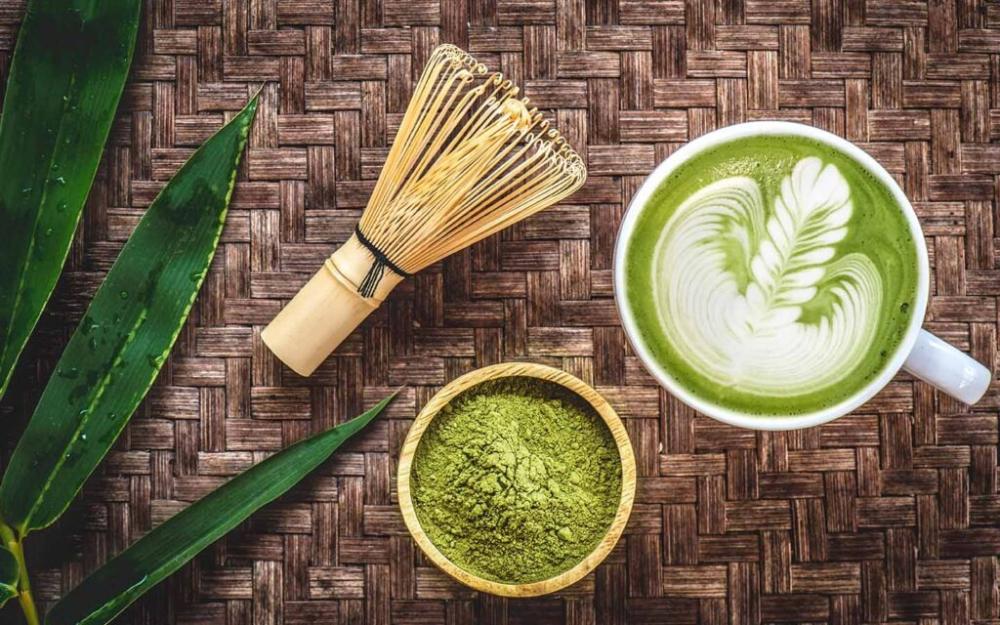Matcha tea is a type of green tea that is distinctive and famous in Japan. Here, dear reader, are the benefits and harms of matcha tea.
What is matcha tea?
Matcha tea is a type of green tea prepared from the leaves of the tea plant, grown in the shade for extended periods. After drying, these leaves are ground into a fine powder used to prepare the beverage.
What makes matcha different from regular green tea?
- Higher concentration of antioxidants: Matcha contains a higher concentration of antioxidants, especially epigallocatechin gallate (EGCG), than regular green tea.
- Higher L-theanine content: Matcha contains a higher amount of the amino acid L-theanine, which helps improve brain function and reduce stress and anxiety.
Benefits of matcha tea:
Enhance concentration skills:
A 2017 study showed that consuming 200 milligrams of L-theanine with the caffeine found in matcha improved mental abilities and attention.
Reducing the risk of cancer:
Studies suggest that antioxidants in matcha , such as EGCG, play a role in preventing the growth of cancer cells, but more research is needed.
Contribute to heart protection:
Matcha, like green tea, is believed to help lower levels of bad cholesterol and triglycerides, reducing the risk of heart disease.
Helps in weight loss:
Matcha helps speed up your metabolism, which may lead to increased calorie burning and weight loss.
Rich in antioxidants:
Matcha contains a higher concentration of antioxidants, especially epigallocatechin gallate (EGCG), than regular green tea, which may help protect cells from damage caused by free radicals, thus reducing the risk of heart disease and cancer.
Strengthening the immune system:
Matcha helps strengthen the immune system thanks to its high antioxidant content.
Improve skin health:
Matcha may help improve skin health and protect it from premature aging.
Other benefits of matcha tea:
- Reducing the risk of diabetes.
- Liver protection.
- Promote oral and dental health.
Matcha Tea Brewing Journey: Simple Steps for a Rich Taste
Matcha tea is a beverage rich in health benefits, and due to its high concentration of antioxidants, it is recommended to consume it in moderation.
Methods of preparing matcha tea:
Matcha tea preparation depends on the type of packaging. Here are two basic methods:
1. Prepare bagged matcha tea:
- Ease of use: This method is easy to prepare, as the specified amount comes in a ready-made package.
- Steps:
- Read the instructions on the package carefully.
- Follow the specific instructions to prepare your delicious drink.
2. Prepare matcha tea from powder:
- Preparation accuracy: This method requires greater accuracy to obtain the desired results.
- the components:
- 4 grams of matcha tea powder.
- 59 grams of hot water.
- Steps:
- Sift the matcha powder into a suitable cup.
- Pour hot water over the matcha powder.
- Mix the mixture well using a whisk or a teaspoon.
- Enjoy delicious matcha tea!
Additional tips:
- You can add natural sweeteners such as honey or coconut sugar if desired.
- You can add milk (starting with cow's milk, almond milk, etc.) to enhance the flavor.
- For a thicker foam, use a matcha whisk.
- Matcha can be added to many foods and drinks, such as smoothies and desserts.
Harmful effects of matcha tea:
Despite its many benefits, excessive consumption of matcha tea may cause some side effects, such as:
Excessive caffeine:
Matcha contains more caffeine than regular green tea, so excessive consumption may cause insomnia, headaches, dehydration, and rapid heartbeat, especially in people with caffeine sensitivity.
Effect on the absorption of some minerals:
Matcha contains certain compounds that may interact with certain minerals, such as iron and calcium, and reduce their absorption by the body.
Gastrointestinal disorders:
Matcha may cause some gastrointestinal disturbances, such as nausea and diarrhea, especially when consumed on an empty stomach.
Effect on pregnancy and lactation:
There is not enough information about the safety of matcha for pregnant or breastfeeding women.
advice:
- It is recommended to drink 2-3 cups of matcha tea daily to get the most out of its benefits.
- Make sure to purchase matcha powder from a trusted source like Drinks Aroma to ensure quality.
- Consult your doctor before consuming matcha if you are pregnant, breastfeeding, or have any health conditions.
We're excited to have you try our high-quality, all-natural Matcha tea. To celebrate the Specialty Coffee Festival, we're offering discounts of up to 30%, with free shipping for the first 50 orders with the code "drinks." Contact us now and enjoy delicious Matcha tea.

